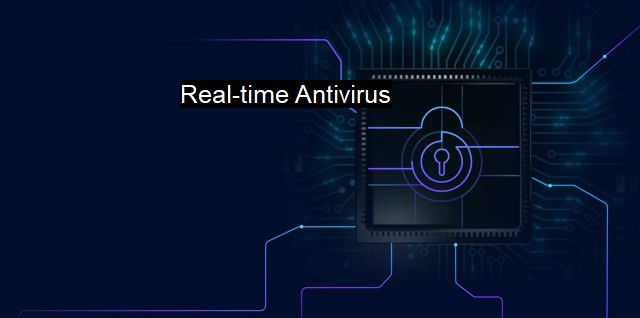What are Real-time Antivirus?
Real-time Antivirus: An Essential Protection Mechanism Against Malware and Cybersecurity Threats
"Real-time antivirus" is a critical security feature that is utilized in the realm of cybersecurity and antivirus. An essential 'always-on' protective shield, its main purpose is to provide continuous, automatic protection for your device against viruses, ransomware, spyware, trojans, worms, and other types of malware. By always actively analyzing incoming data, files, and conducting system checks, it enables immediate detection, isolation, and removal of unwanted malicious threats before they could potentially cause harm to your device.Broadly speaking, in comparing "real-time antivirus" with traditional antivirus programs primarily lies in its ability to provide a proactive approach instead of just a reactive one. The conventional antivirus programs primarily work on a system scan basis where virus definition updates are generally downloaded and installed during a system-scan operation. Once installed, this type of program responds to threats after they have infected the system. Conversely, a real-time antivirus provides a constant scanning approach that immediately responds to threats the moment they try to infiltrate a system.
For this system to efficiently work, the real-time antivirus functions by employing a technique called 'heuristics'. Heuristic technology equips the antivirus to detect newly released or previously unknown malware by analyzing the code of files and detecting signs that indicate malignancy. This feature ensures that even the newest and most sophisticated viruses, which do not yet have known specific virus signature files, can still be recognized and stopped.
Another critical characteristic of real-time antivirus is the background scanning feature. Without requiring user intervention, it constantly performs checks in the background while the computer is running. It scrutinizes every single file that you download, open, or run, as well as all websites accessed. This capability guarantees that malicious content can't establish a foothold in your system.
The integration of "real-time protection" into antivirus software adds an extra layer of defense against advanced persistent threats (APTs). Hackers wield APTs across long periods, silently exploiting systems while remaining undetected. with a real-time antivirus, these stealth tactics become less successful as it continuously monitors unusual activity within the system, alerting users immediately in the event of prospective threats.
Preventing the installation of harmful applications is another major attribute of real-time antivirus programs. Whenever a potentially harmful application is in the process of being installed, this software warns or stops the installation completely until further permission is given by the user.
Although real-time antivirus provides considerable benefits it also has its downsides that are worth noting. One potential issue is that continuous scanning operations may contribute to slower system performance due to the consumption of system resources. Another is the possibility of false positive alerts, which may result in suitable applications being flagged.
Regardless when data threats have continually evolved and grown more sophisticated, cybersecurity must be adequately reinforced. Supplementing end-point protection with a real-time antivirus is critical in fortifying defenses and safeguarding your system from potential harm. It may not be a complete solution in eradicating threats but it serves as an essential line of defense in this ever-enigmatic cybersecurity landscape. Therefore, understanding, investing, and relying on a trusted antivirus program with a real-time protection feature becomes an essential part in ensuring the safety and security of your digital world.

Real-time Antivirus FAQs
What is real-time antivirus?
Real-time antivirus is a type of cybersecurity software that continuously monitors a computer system for potential threats in real-time. It detects and eliminates malware, viruses, and other malicious software as soon as they appear on a system, without any user intervention.How does real-time antivirus work?
Real-time antivirus works by constantly scanning the files and various parts of a computer system and cross-checking them with its database of known malware and viruses. Whenever it detects a threat, it immediately quarantines the affected file and alerts the user. It also prevents the user from accessing websites, links, or files that are identified as potentially harmful.Is real-time antivirus necessary?
Yes, real-time antivirus is necessary as it provides 24/7 protection against malware, viruses, and other cyber threats that can harm your computer system. Without real-time antivirus, your computer is vulnerable to various types of cyber attacks, which can result in the loss of valuable data, identity theft, and many other problems.Which real-time antivirus is the best?
The answer to this question depends on your specific needs and preferences. Some of the most popular and effective real-time antivirus software in the market include Kaspersky, Norton, Bitdefender, McAfee, and Avast. It is recommended to choose a real-time antivirus that is reputable, regularly updated, and offers comprehensive protection against various types of cyber threats.| | A | | | B | | | C | | | D | | | E | | | F | | | G | | | H | | | I | | | J | | | K | | | L | | | M | |
| | N | | | O | | | P | | | Q | | | R | | | S | | | T | | | U | | | V | | | W | | | X | | | Y | | | Z | |
| | 1 | | | 2 | | | 3 | | | 4 | | | 7 | | | 8 | | |||||||